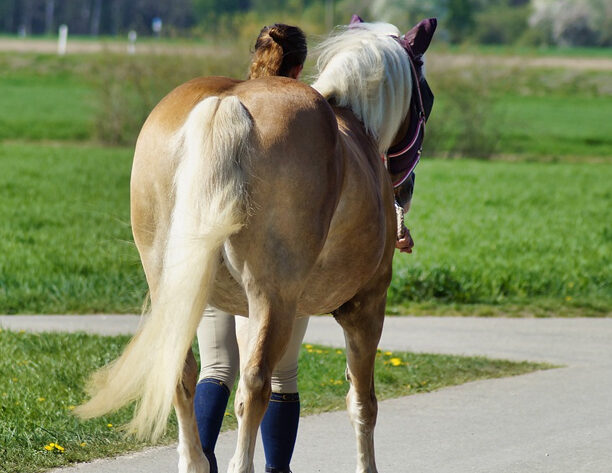It is becoming increasingly clear that horse training works best when broken down into specialty segments: Life skills (like basic husbandry and handling), psychological skills like emotional regulation, intellectual skills, and athletic development.
If you compare the equine athlete to the human student-athlete, those segments make more sense. Stacy Westfall uses the horse/student analogy often, and I find it very helpful when trying to decide on the right path for teaching my horse a particular skill.
A student-athlete begins their learning at home, as a young child. Basic communication skills, safety, emotional security, social skills, and etiquette. When the child moves on to kindergarten, there’s a mixture of life skills and problem-solving taught in a classroom that is designed specifically for kindergarteners. As kids move up in age, life skills are still taught through the high school level, but there is a greater emphasis on critical thinking, problem solving, and then athletic development.
If we think of horse trainers and their role in the development of working horses, it is important to identify which human role they would take on if the horse was a human child.
Some coaches are great parents and teachers, while others are really only good at coaching. As we regard ourselves in relation to horses, it is important recognize ourselves as the parent, the teacher, or the coach. Are you good at all three? Some people are. If not, which roles best suit you? Do you have the skill set (or desire) to teach a horse basic life skills? That process requires a lot of patience. Imagine yourself as a kindergarten teacher! Does the idea delight you or make you shudder?
Growing up as a highly competitive athlete, I trained under a few coaches who had little patience, but that characteristic didn’t preclude them from being great coaches. In fact, the best coach of all, in my experience, was the one with the least amount of patience. He was brusque and easily frustrated, but also incredibly supportive, generous with his time, and terrific at helping his athletes find their best performances through confidence-building tasks.
-HH
Are you a talented rider who teaches and trains in order to pay the bills? You may be very good at riding and competing, but struggle with training a horse, having to rely on excess equipment, supplements, drugs, or other workarounds in order to get a cooperative athletic partner.
The point I am making is this: The development of an equine athlete requires an understanding of the horse’s motivations and intrinsic needs, as well as a realistic view of your own skills and motivations.
It is not necessary for one person to wear All of the Hats, and it is not necessary for one training method to accompany a horse throughout their education. Do not be afraid to step outside of your own expertise and ask for help. Do not feel like asking for help diminishes your expertise, authority, or talent in ANY. WAY. On the contrary, the most accomplished, talented, successful athletes are the ones who value and recruit specialists outside the scope of their abilities or experience. And, no matter how highly you value your own abilities, the reality is that you are not excellent at everything, and you don’t have to be.
So consider recruiting some help in an area that challenges you beyond your emotional, physical, or mental threshold. To do that, however, you will need to allow yourself to accept the reality that it’s okay to even have a threshold.
For help understanding your horse’s needs and motivations, please feel free to reach out.

